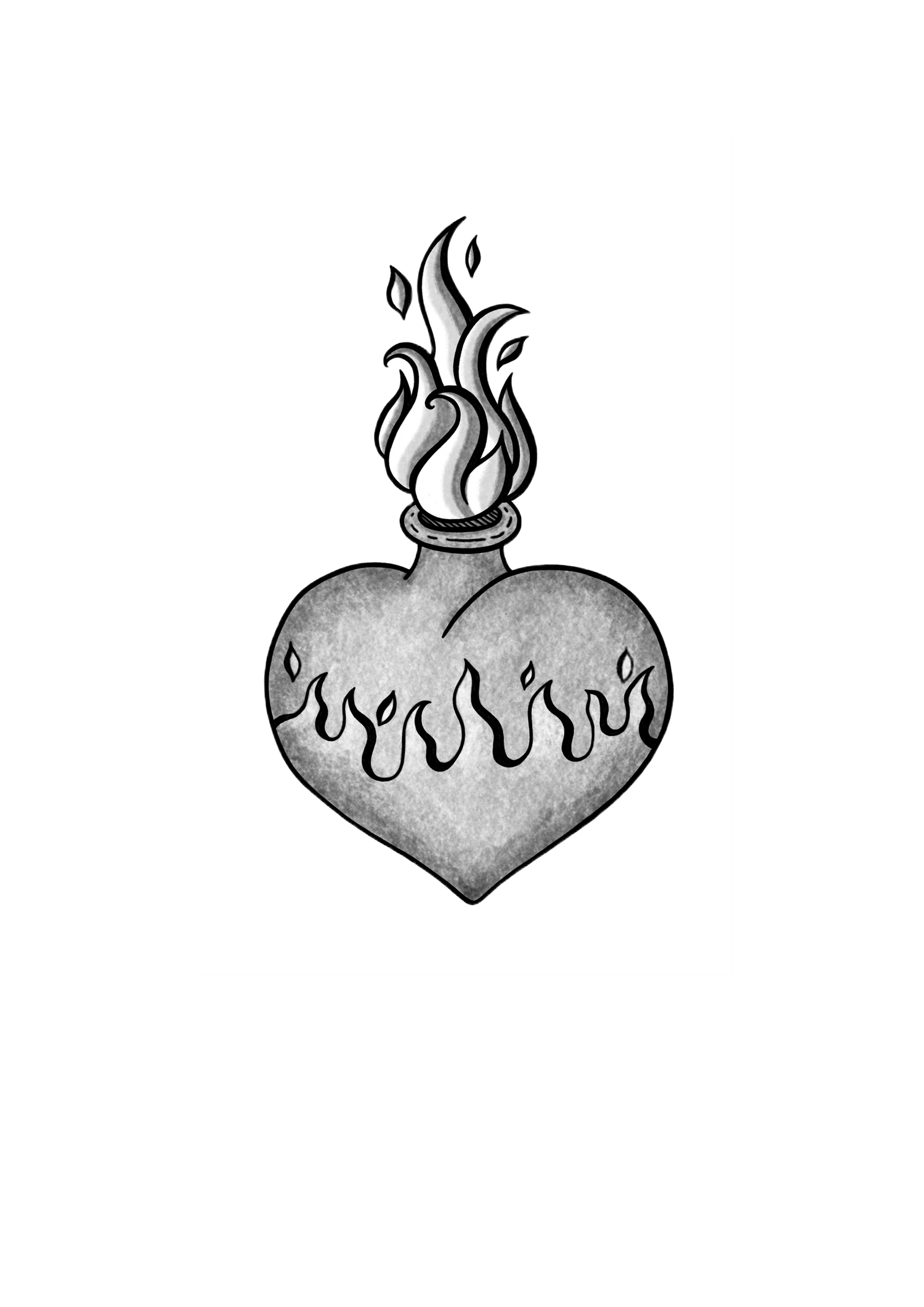I Offer An Eraser by Karen Walker
The first one of my day pushes the automatic button. The office door slowly swings open.
The winter wind rushes in ahead of them—an old man leading an old woman, inching her along by the elbow. I brace myself.
The two are small, unkempt. They're bundled in dirty white parkas, in hats and scarves knitted of coarse grey country wool.
My father never reached such a sorry state. I served him better than that.
The citizens shuffle towards my counter in sloppy boots.
I wait and wait. Finally, they arrive. I offer the standard government greeting, then request forms CNHC 201, 203, 206 and Addendum 5J completed—it should go without saying—correctly and in full.
The old man mumbles something.
My father did that, too, expecting me to comprehend.
I rap on the thick green glass between the citizen and me, and point to the speaking hole. He leans in, chokes, "My wife needs help."
She's staring at the floor.
I respond with, "Her applications, please."
As it was designed to do, the glass distorts, but not enough. The man has dark, round eyes. I can see the mistiness in them.
This could become poignant. My father had those eyes at the end.
"Applications? She needs help now," he says.
My father had begun repeating himself.
"I understand." Many of the aged need help. Even in this small backwater office, there are five or six to be processed daily.
I push a stubby pencil and the required forms under the glass barrier. "Please complete."
The citizen's mouth hangs open.
Oh, his yellow teeth and purplish tongue. They force me to look down as I recite the standard instructions: put the name of the individual to be given here, here, and here. The name of the giver goes there and there. Sign there. "There can be no cross-outs or messiness."
I take a breath, a break. Outside the window, the snow is falling light and sugary then, suddenly, heavier. Big, thick, wet flakes stick and smother.
When I turn back, the man blows hard: the woman has a bad back and worse knees. She wets herself. She doesn't know him most of the time and wanders in the night. He and she have paid taxes all their lives and were never any trouble. He can't cope. He wants to give her to the government. "Did it not promise to care for all when the time came?"
For the government to serve, I explain, the forms must be completed.
It is not required to say what I say next. I say it because not every citizen has a daughter to help, one who is kind and reciprocates for a sunny, bountiful childhood. "I'll help you," I say. "I completed the very same applications for my father."
I offer an eraser.
He blinks, nods, and takes it. Slowly turns his statue wife towards the metal chairs along the walls where he seats her gently, loosens her scarf. He plops down at a small table and starts the applications.
Soon, there'll be no more worry. The woman will be in a better place than she is now, wherever that is—judging by their rags and his drawl—in the hills. She'll be safe and warm and fed.
Father was transported quickly and pleasantly. The officer who came for him last Sunday wore cheerful yellow and flowery perfume, stayed for lunch before she carried his bags down the steps. Father thought the officer was me and drove off with her without a wave.
I've applied to see him in April.
The happy thought of that and spring inspires one more kindness: I'll make the man aware of the forms necessary to visit the woman, send him away with those and the eraser.
“I've liked this story and I've hated it. This being Friday night (when everything seems possible), I've decided I like it. Again. I once added one words, then cut two hundred. There was a robot in it at one point and a cat whose name I've forgotten.”
Karen writes in a low Canadian basement. Her work is in or forthcoming in A Thin Slice of Anxiety, Bullshit Lit, The Bear Creek Gazette, Blank Spaces, Janus Literary, Atlantic Northeast Magazine, miniskirt mag, and others. She/her. @MeKawalker883

